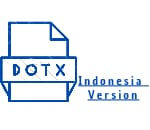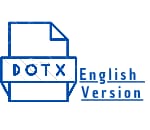PENGARUH PROFITABILITAS, UKURAN PERUSAHAAN, LEVERAGE TERHADAP TAX AVOIDANCE (Studi Empiris pada Perusahaan Manufaktur, Sektor Industri Barang Konsumsi, Sub Sektor Industri Makanan dan Minuman yang Terdaftar di Bursa Efek Indonesia Tahun 2017 sampai 2021)
DOI:
https://doi.org/10.35137/jabk.v10i3.77Keywords:
Profitability, Firm Size, leverage, tax avoidanceAbstract
This study aimed to analyze influence of profitability on tax avoidance, firm size on tax avoidance, leverage on tax avoidance, as well as analyze influence of profitability, firm size, and leverage simultaneously against tax avoidance.Measuring tax avoidance in this study using the CASH ETR, profitability using return on asset (ROA), firm size using SIZE and leverage using debt to equity ratio (DER) . The population in this research are the manufacturing companies in the consumer goods industry sector, food and beverThe sampling technique is a purposive sampling method age industry sub sector. listed in Indonesia Stock Exchange for year 2017-2021. The sampling technique is a purposive sampling method by considering criteria-criteria, which result for 75 data sample. The analysis method uses descriptive statistic analysis and regression analysis with SPSS version 26.Descriptive statistical test results showed an average of 28,56% CASH ETR indicated high levels of the tax avoidance. Regression test results shows that variabel of the profitability and leverage have a significant effect on tax avoidance, while firm size not effect on tax avoidance. Simultaneous statistic test show that variabel of profitability, firm size, and leverage have a significant on tax avoidance.
Downloads
Downloads
Published
Versions
- 2024-03-04 (2)
- 2023-12-21 (1)
Issue
Section
License
Copyright (c) 2024 Tarisyah Cahyatie, Mulia Rahmah

This work is licensed under a Creative Commons Attribution-NonCommercial-ShareAlike 4.0 International License.
Authors retain the copyright of the work published in this journal and grant first publication rights to the journal. Authors may make separate, additional contractual arrangements for non-exclusive distribution of the journal-published version of the work (e.g., posting it to an institutional repository or publishing it in a book) with acknowledgment of its initial publication in this journal. Authors are permitted and encouraged to post their work online (e.g., in institutional repositories or on their websites) before and during the submission process, as it can result in productive exchanges, as well as earlier and greater citation of the published work.
Use of published articles will be governed by the Creative Commons Attribution license as currently displayed at Attribution-NonCommercial-ShareAlike 4.0 International (CC BY-NC-SA 4.0).




